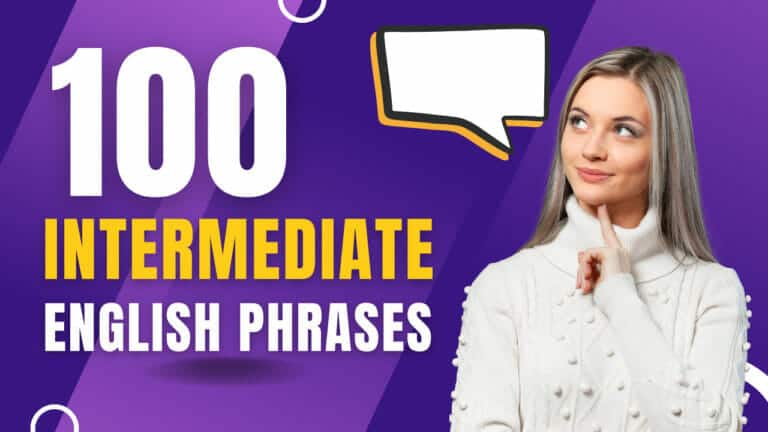
Everyday English Speaking Course – Level 2
Hello students! Some informal and idiomatic expressions in English just don’t seem to make sense. In today’s lesson, I’ll explain four phrases that my students have asked me about.
Don’t try to translate or understand these phrases literally – that’s a common mistake among language learners. If you try to understand it word by word, it won’t make sense. Instead, you need to understand each phrase as a whole unit, with a particular meaning.
If you want to enrich your English with interesting expressions – and learn them in context – sign up for my Everyday English Speaking Course Level 2. This course is based on more advanced conversations that are full of expressions like these. You can click here for a free sample.
#1 – It’s nothing to sneeze at
This phrase means it’s something that should NOT be ignored or dismissed. It might be small or minor, but it is still significant.
For example, let’s say your friend has had financial troubles for a very long time, and he often has no extra money in savings. But then he practices good financial habits for a few months, and manages to save $500 in a savings account. He could say, “It’s not a ton of money, but it’s nothing to sneeze at” – it means it’s significant, it’s still something well done even though it’s a small number when compared to millionaires.
Another example is if you meet someone who used to do gymnastics. You ask about her level, and she says “Well, I never qualified for the Olympics, but I won first place in the state championship.” You could reply, “That’s nothing to sneeze at!” – recognizing that it was a significant accomplishment, not to be ignored.
#2 – There’ll be hell to pay
This expression means there will be extremely strong negative consequences – especially when someone else will get very angry.
For example, let’s say your brother really loves his bicycle and keeps it in perfect condition. If you borrow the bicycle without asking and damage it, there’ll be hell to pay – meaning your brother will be furious at you and will maybe yell at you or speak strong words of anger.
Or if you have a very demanding boss who puts a high emphasis on punctuality (being on time) and you are 15 minutes late to a meeting, then there’ll be hell to pay. Your boss will reprimand you and maybe even punish you.
#3 – To each his own
This means “every person has his/her own preferences” and we often use it when we don’t share the person’s preference or we would have made a different choice.
For example, if your father likes to put ketchup on his scrambled eggs (and you dislike that particular combination of foods), you could say “to each his own” to acknowledge that each individual has different preferences and we won’t all enjoy the same things.
You can also say “to each her own” when talking specifically about women (ex. If your cousin gave birth at home instead of a hospital and you definitely prefer hospitals, you could comment “to each her own” to say that different women have different preferences).
Nowadays it’s also common to say “to each their own” to be used for humans in general, regardless of gender.
#4 – a far cry from
If something is “a far cry from” something else, it means it is VERY different.
Imagine you move from a tiny apartment into a huge house. You could say, “My new house is a far cry from my old apartment!” It’s not referring to distance, so don’t get confused by the word “far.” It just means it’s a very different situation.
Here’s another example: let’s say a director produces a great movie. Then, his next movie is not very good – the acting, story, and filming are all terrible. You could say the quality of the second movie is a far cry from the first, meaning extremely different from the first movie.
You can see how each of these expressions is difficult to understand from the words themselves, but easier to learn when you have an example of a situation where it would be used. This is why I highly recommend learning phrases in context, not just trying to memorize lists of phrases and definitions, and my Everyday English Speaking Course Level 2 can help you do that. Go ahead and try the free sample lesson, and if you like it, then you can sign up for the course.










